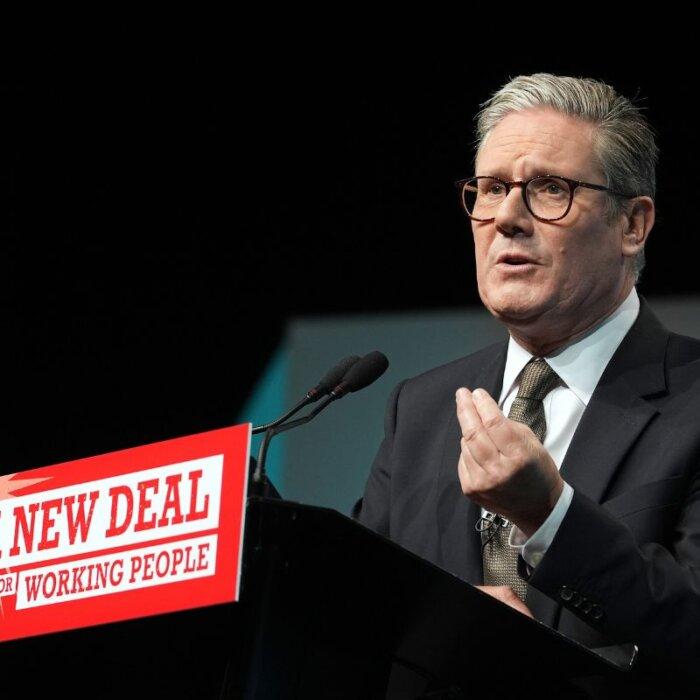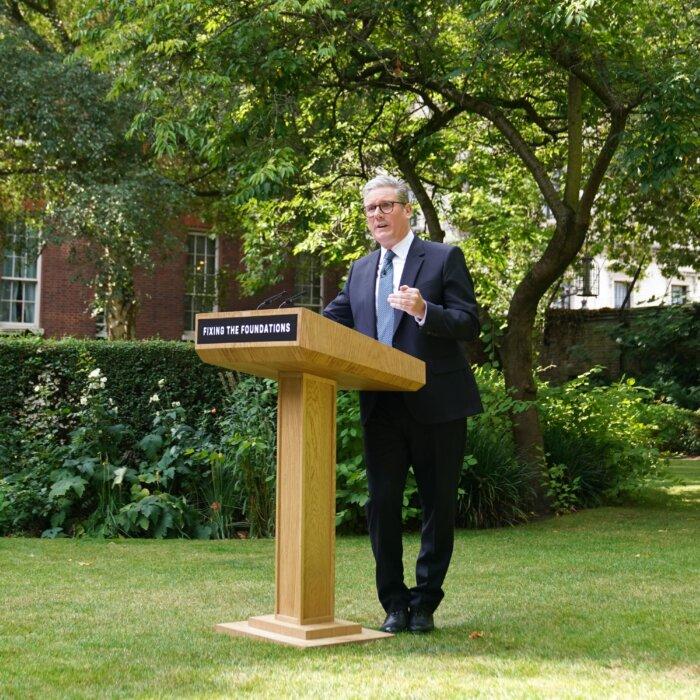Sir Keir Starmer used his first Labour Party Conference speech as prime minister to hint at forthcoming tough measures on welfare reform, saying that the UK population must “face the storm” to come.
Addressing an audience of Labour members, Starmer pledged there would be “no return to austerity” as orchestrated by the Conservatives for a decade from 2012, but he said there would have to be reform in order to “protect the welfare state.”
‘Unpopular Decisions’
Pushing through his 54-minute speech, which included an early blunder in referring to Israeli hostages as “sausages” and later a pro-Palestinian heckler, Starmer said: “I understand many of the decisions we must take will be unpopular.“If they were popular – they’d be easy. But the cost of filling that black hole in our public finances, that will be shared fairly,” he continued, in reference to the £22 billion deficit which he claims was revealed to him only after Labour won the general election in July.
“We will get the welfare bill down because we will tackle long-term sickness and support people back to work. We will make every penny work for you because we will root out waste and go after tax avoiders.
‘No Return to Austerity’
But Starmer promised there would be, “no return to Tory austerity. We will rebuild our public services, protect working people, and do this in a Labour way.”He acknowledged that many people would be concerned about an aparent return of austerity measures following the controversial decision to remove the winter fuel allowance for all pensioners except those in receipt of the Pension Credit benefit, which came as a surprise to many and had not been mentioned in the Labour manifesto.
He said: “And if you can’t take that on faith, perhaps because you’re concerned about the winter fuel allowance, then I get that. As I say, if this path were popular or easy we would have walked it already.
“But the risk of showing to the world—as the Tories did—that this country does not fund its policies properly, that is a risk we can never take again.
“Stabilising our economy is the first step of this long-term plan.”
He added that, “the time is long overdue for politicians to level with you about the trade-offs this country faces.”
Starmer, who as a newly elected backbench MP voted in support of Tory welfare cuts in 2015, told the conference: “If we want to maintain support for the welfare state, then we will legislate to stop benefit fraud. Do everything we can to tackle worklessness.”
He said that his government would work towards a “youth guarantee” intended to “eradicate inactivity and unemployment for our young people – once and for all.”
Sharp Rise in Sickness Claims
One in 10 adults of working age are on sickness benefits amid a surge in claims for mental health conditions, according to the Institute for Fiscal Studies (IFS).The number of people aged 16 to 64 claiming incapacity, disability benefits or both jumped from 2.8m before the lockdown era to 3.9m now, the think tank reported, with the number of under-40s making new applications for sickness benefits rising by 150 percent since 2020, jumping from 4,500 to 11,500 a month.
Welfare reform has always proved a divisive issue within Labour, as the party that created the post World War Two welfare state under then prime minister Clement Attlee and health secretary Aneurin “Nye” Bevan.
‘Homes for Heroes’
Starmer’s speech also included a pledge likely to be less controversial as he promised that armed forces veterans in need would be given a guarantee of housing.He said: “There is another injustice hiding in plain sight in our streets. In every town and city in this country. People who were prepared to make the ultimate sacrifice for our nation. Who put their lives on the line to protect all of us, but who will not have a safe place to sleep tonight.
“We cannot stand by and let this happen anymore.”
Starmer did not offer details of how the policy would work in practice but said the government would “respect that service,” adding: “We will repay those who served us. And house all veterans in housing need.
“Homes will be there for heroes.”
Pointing to plans the government has to reform the planning system, Starmer said the same promise could be made to others at risk of homelessness, including young care leavers and victims of domestic abuse.
In an appeal to “anyone nervous about the difficult road ahead” the prime minister said there would be “light at the end of this tunnel.
“If the last few years have shown us anything, it’s that if you bury your head because things are difficult, your country goes backwards.”
Blaming the previous government for the legacy inherited by Labour, Starmer said: “We will turn our collar up and face the storm.
“We will rise above the challenges that we’ve inherited.
“Because this is a country with fairness in the water, that believes in justice, and that wants working people to be respected.”







